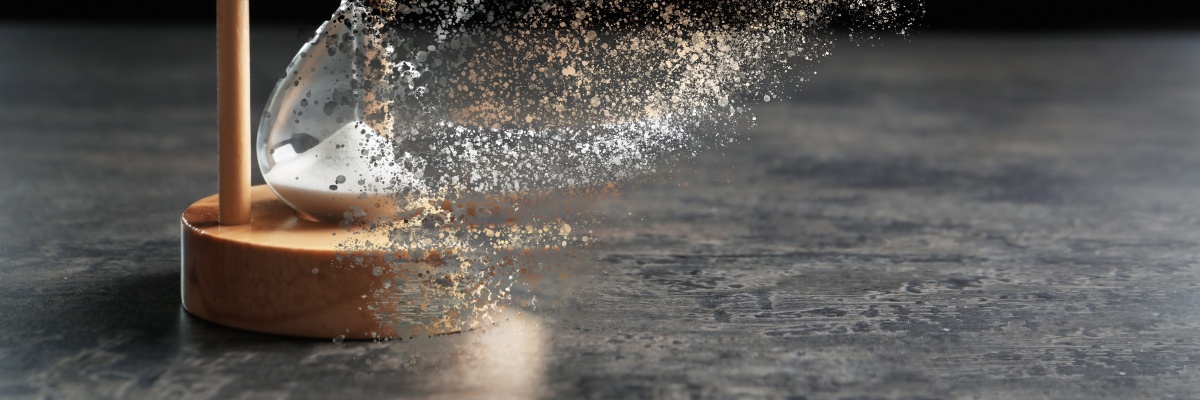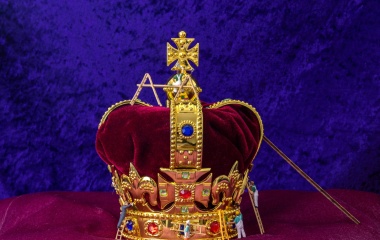
I wrote the thought below on that last day of saying kaddish for my father, Harav Chaim Yosef ben Harav Zvi Yehudah, z"l, four years ago. It generated more comments than any other piece I have ever written.
As we ready to observe his Yahrzeit tonight, I would like to share these thoughts again for the many who have since joined the TiM mailing list. For those reading it again, I hope you feel it is worthy of review.
May we celebrate smachot,
Jay
"And one lamb in the morning, and one lamb in the evening" (Shemot 29:39). This, claims one view in the midrash, is the most important verse in the Bible. More significant than, "Love your neighbour as yourself", or the Shema, or any of the Aseret Hadibrot. What is so special about this verse that has no applicability today, discussing, as it does, an ancient Temple ritual?
The essence of Judaism is to be found in the day-to-day observance of its laws. It is not the thunder or lightning of Sinai, but rather the detailed laws of Mishpatim—torts, civil law, contracts, labor law and the like—that is the key to Judaism. One can get inspired for a day on Yom Kippur, find great meaning in Pesach, or get spiritually charged from a visit to Israel, but it is the korban tamid, the daily offering of sacrifices, the going to shul every morning and every evening, that gives Judaism its strength and endurance.
In the hierarchy of mitzvoth, that of the Mourners Kaddish ranks extremely low. Its origins are shrouded in mystery, and the custom (and that is all it is) likely does not predate the Middle Ages, lacking Talmudic precedent. Originally, it was said by scholars after learning; only later did custom dictate that mourners recite the kaddish. And initially only minor children said it, with those over bar mitzvah expected to lead the services. Until about 150 years ago, mourners took turns saying the kaddish, in keeping with the law that "two voices cannot be properly heard". It was in order to avoid the inevitable arguments about whose turn it might be to say kaddish that the custom developed to allow all mourners to say it in unison. Fighting over who should get to pray for peace would defeat the entire purpose of the kaddish.
Yet it is hard to think of a more powerful aspect of Judaism than that of reciting kaddish. Thankfully, so many Jews—including those who are distant from religious observance—reorient their entire schedules for 11 months so as to not miss kaddish. And this, despite the fact that kaddish makes no mention of the dead.
There is nothing quite like death to get people religiously motivated. Rav Soloveitchik noted that teshuva is one of the primary functions of shiva. It is not healthy to be focused on death; but it is irresponsible to ignore it. Shiva most intensely—and the recitation of kaddish in a less pronounced way—causes us to focus on our mortality, hopefully leading us to live our remaining years more productively.
"And G-d saw all that He did, and it was very good". The Midrash notes that "very good" refers to the day of death. Knowing that we are not here indefinitely, and that we will have to give an accounting of our life, forces us to set goals and live more responsibly.
Add some feelings of guilt for not fully observing the mitzvah of kibbud av v'eim, which our Sages already noted is next to impossible to do properly, and the saying of kaddish acts like a magnet drawing in people to shul—including those far removed from Jewish life. My father, z"l, would marvel at people who came to shul faithfully for eleven months, only to leave as soon as mincha ended on the last day of the 11th month and not return to shul until Rosh Hashanah. With kaddish over, why daven ma'ariv? Yet he was most proud of the many who, having gotten in the habit of coming to shul, continued to come on a regular basis for years. Kaddish was their springboard to a lifelong involvement in synagogue life and learning.
It is not going to be easy to stop saying kaddish. This is doubly hard in light of my mother's, z"l, passing ten years ago; because the end of kaddish will even more starkly bring home the point that I am truly orphaned with no tangible links to my parents, z"l. Kaddish has been my anchor, day in and day out, for the past eleven months. There is something very comforting in having your schedule revolve around your parents. I would think of my father as I said the kaddish. Images from our lives together would flash through my mind as I recited the familiar words, reminiscent of the midrash that Yosef was inspired by the image of his father that he saw before him.
While I am used to going to shul on a daily basis, going to shul knowing you have to say kaddish is different. For starters, no more walking in five (or more) minutes late, or missing minyan here and there. One begins to appreciate the great insight of our Sages that, "greater is the one who is obligated than the one who is a volunteer". There are no days off and no vacation. There is a sense of nervousness when traveling, lest unforeseen delays cause one to miss shul. Taking my turn in leading the davening helped me to increase my level of concentration in prayer.
"O, who is like you, the people of Israel?" To be asked by people I did not know in Cincinnati, Chicago, Atlanta, Jacksonville, Miami Beach, New York, and Toronto, to lead the davening helped to demonstrate that we are one family. Being asked to daven in a shul where I was perhaps the only person not wearing a black hat made me feel that there is so much that unites us.
Dor holech v'dor bah, a generation comes and a generation goes. As many of you know I, along with my sister, was in Israel celebrating my nephew's wedding when my father passed away. My brother and stepmother, who stayed behind in Toronto, had the strength to keep my father's passing a secret for 24 hours so as not to ruin the joy of the wedding.
My brother was recently blessed with a baby boy who carries the name of our father, Chaim Yosef. We celebrated the bar mitzvah of our second son the week after the sheloshim, and we look forward to celebrating our daughter's bat mitzvah on the second day of Shavuot, just three days after we stop saying kaddish.
When a person dies, we are to reflect on all the good that the person did, inspiring us to follow in their footsteps. My father, z"l, dedicated his life to serving the Jewish people. He was an innovator and pioneer in so many areas, all while faithfully serving a congregation he helped grow to 1,500 families. He had the rare combination of a warm personal touch coupled with a big-picture vision for the Jewish people. Together with my mother, he built a community and nurtured a family. It is their example I seek to emulate. Yehi zichram baruch.



